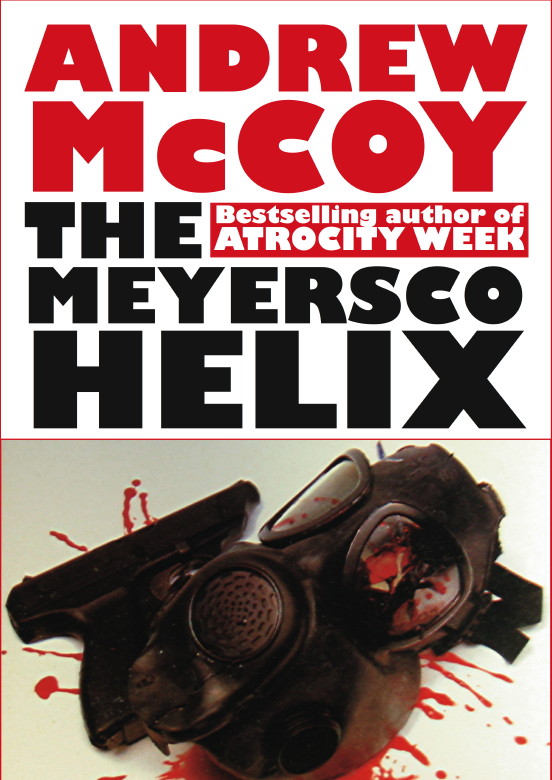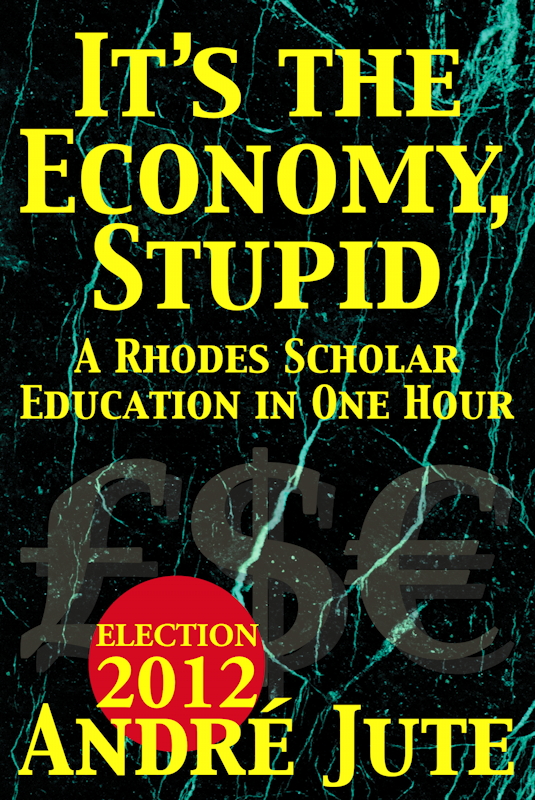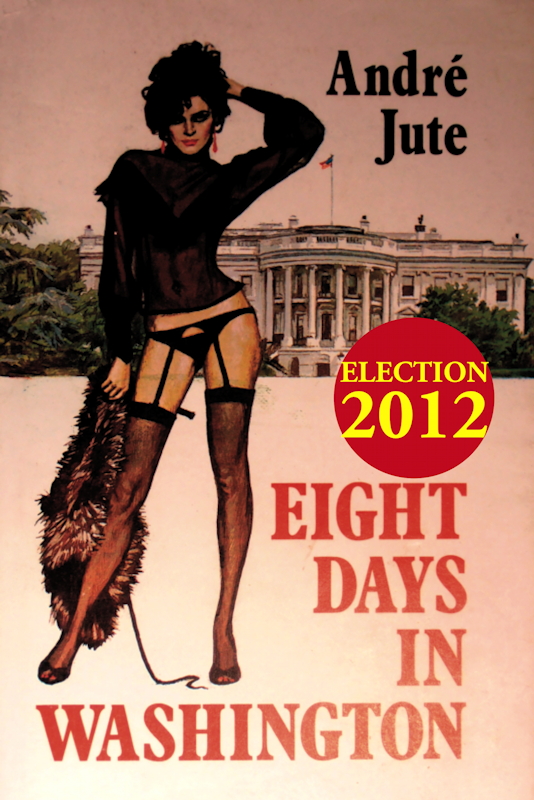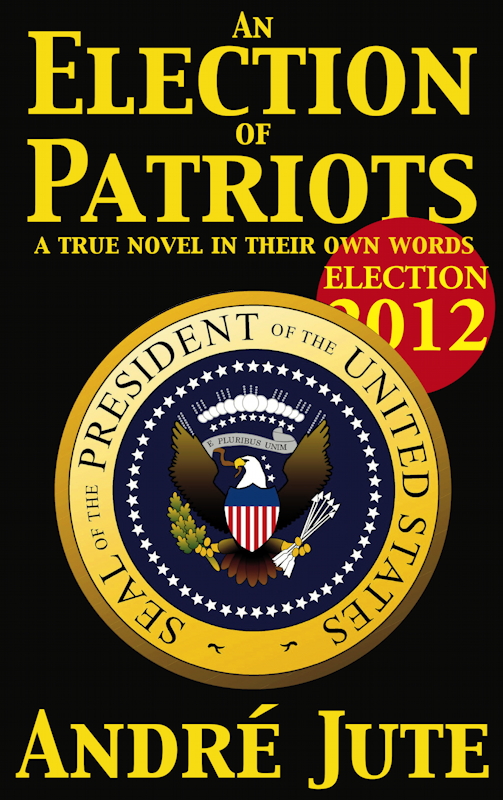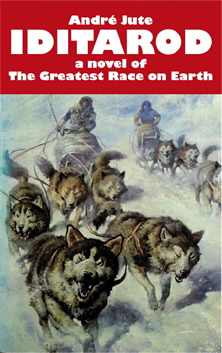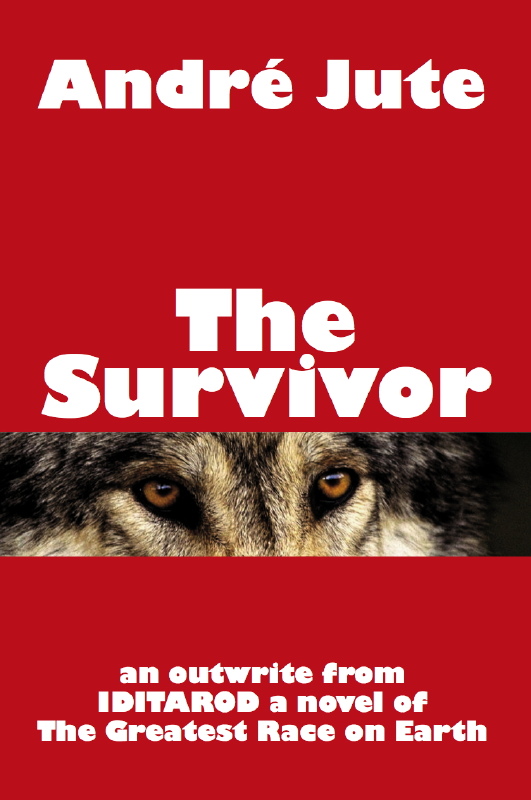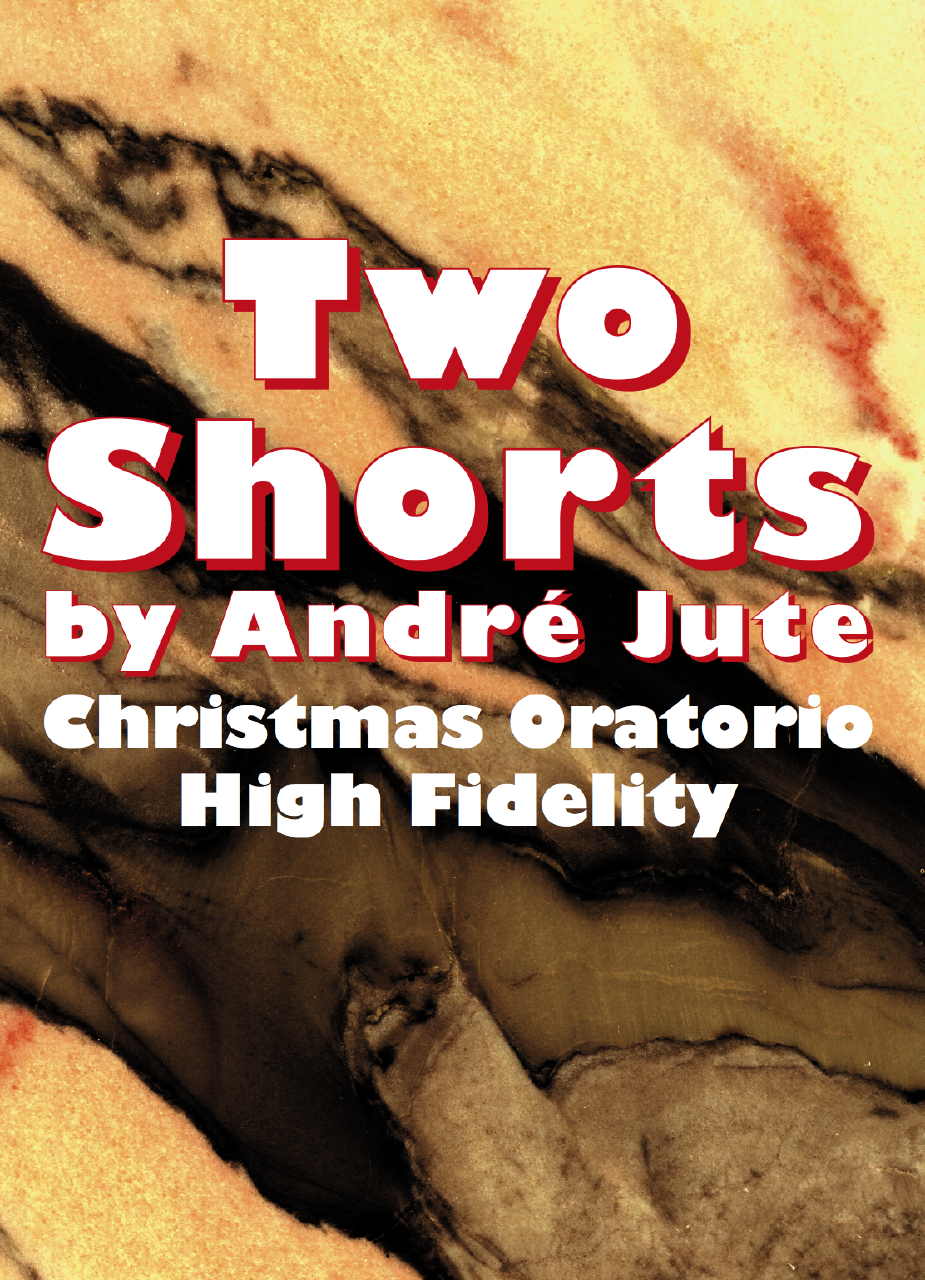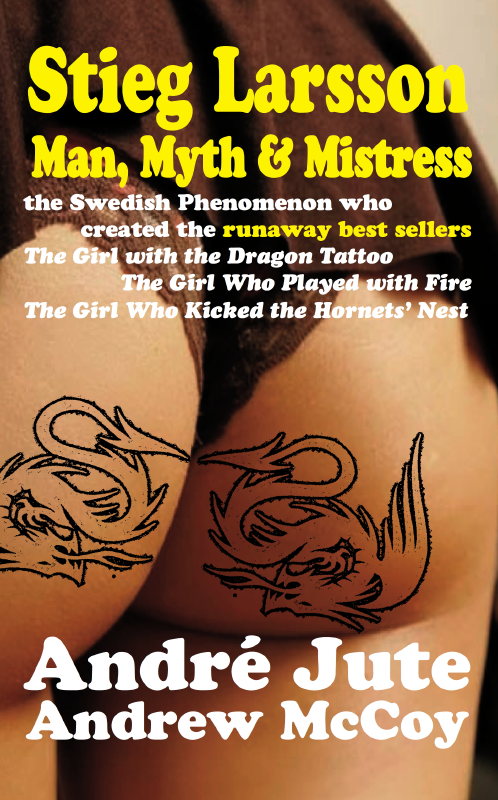Readers' Reviews of
STIEG LARSSON Man, Myth & Mistress
by André Jute & Andrew McCoy
***
Minority Report
By William Marantz "willie"
4.0 out of 5 stars
"Any man more right than his neighbors is a majority of one."
Who said that?
Well, it doesn't really matter, you get the point.
At the beginning of this book the author suggests it is for those who have read and enjoyed the Millennium Trilogy - which does not include yours truly in his target demographic. After slogging through the first third of THE GIRL WITH THE DRAGON TATTOO I restricted my reading to the first sentence of every paragraph, and had no trouble following the paint-by-numbers plot to its predictable conclusion. Consequently Andre Jute's meticulous depiction of the emperor's nakedness did not come as a revelation.
At least as far as literary skill (or lack thereof) is concerned.
The politics behind the rise of the Stieg Larsson phenomenon was a revelation. Though there is considerable speculation leading to the author's conclusions none of it is idle. The much published Andre Jute is in a position to know whereof he speaks and his insight into the self-serving sleaziness of the publishing industry (and professional criticism) has the weight of experience and the ring of truth.
But, one can't help wondering, to what end? This book would enrage, rather than convince, the vast multitude of Millenniumophiles (for whom it is purportedly intended) and they will avoid it like toxic waste. And, as I have observed, it will hardly come as a revelation to the handful of discerning readers who have discovered, through tedious experience, that the late Stieg Larsson was a lousy novelist. The only mystery is how he became a literary icon and I'm afraid this highly readable critique/expose, while shedding some light, does not solve it. Andre Jute, as a card-carrying intellectual, is under the illusion that such cosmic Gordian knots can be unraveled by searching analysis when they really come under the category of "you can't make this stuff up". The ways of God or Fate or Destiny, or whatever you choose to call the puppet master, are beyond the ken of the puppets. Trying to rationalize what Jute refers to as the "Larsson Scandal" is as futile as trying to narrow down the cause of "climate change." There are too many factors to consider - including the position of the planets. In fact using "reason" instead of common sense can lead to ludicrous conclusions. Like Andre Jute's speculation that the Millennium Trilogy might actually become a literary classic because it will always have a large potential audience of abused women.
Yeah, right.
There's a much simpler test of whether a book is "literature" (to use Jute's phrase) or escapist trash. If you can read it more than once it's the former. Frankly I'm amazed that a discerning critic like Andre Jute managed to read it once.
William Marantz is the author of Christmas Eve Can Kill You
***
worth $3.00 less than the actually price
By Brent Jones "brentjones" (Oak Park, IL USA)
1.0 out of 5 stars
Jute spins his myths with sloppy style. He is apparently confused with keeping a straight narrative. The whole "critique" is built on several conjectures by Jute who may be jealous of Larsson's posthumous success. If only I could give a negative star to this catastrophe of writing. Read something more entertaining, like The Hangman's Daughter or even The Girl with .... :)
***
Excellent guide to how publishing does and doesn't work
By Keith Brooke
4.0 out of 5 stars
My first encounter with Andre Jute's work was way back in the 1980s when I was working my way towards writing my first novel, when I read his excellent Writing a Thriller (Writing Handbooks). I devoured any writing book I could find at that time and, to be frank, most were regurgitated pap. Jute's was different. Much like John Braine's book on novel-writing, Jute took a strongly individual approach, but unlike Braine he was more open to variation: rather than "this is the way to do it and if you don't like it, stop reading" of Braine, Jute showed alternative approaches, was open to people doing it their way and, above all, applied a sharp intelligence to the whole process of novel-writing.
In STIEG LARSSON Man, Myth & Mistress, Jute (with collaborator Andrew McCoy) turns that analytical intelligence to the recent phenomenon of Stieg Larsson's Millennium trilogy. STIEG LARSSON Man, Myth & Mistress is a work of criticism, but more, it's a study of how a collision of circumstance can lead to an entertainment industry happening, with books that sell by the million and high-budget movies to follow. While STIEG LARSSON Man, Myth & Mistress is worth reading for the criticism alone, for me it was the story of the story that made this book required reading for anyone with an interesting in the publishing industry.
It should be acknowledged that criticism, by its nature, focuses on the negative, and at times this book is bitingly critical. Jute and McCoy do state often that they are fans of Larsson's work, but inevitably they focus on its shortcomings. This shouldn't be off-putting to admirers of Larsson — far better a healthy debate than yet more hagiography. Indeed, despite the critical tone of this book, an indicator of the authors' achievement is that, although I haven't read the Larsson originals, this work leaves me more eager to seek them out, rather than putting me off.
The weakest aspect of this book is its tone, lapsing at times into rant mode, although this should perhaps be regarded more as a rhetorical device. It grates a little that benificiaries of Larsson's estate, his brother and father, are barely examined other than us having to trust that they are basically decent types, while others in the story get a far closer critical examination. The at times sweeping dismissal of "politically correct 'literary' criticism" and references to "the sly Larsson" and similar undermine the argument at times, too: I'd far rather be allowed to reach those conclusions myself than have them repeatedly labelled as such.
Those minor criticisms aside, STIEG LARSSON Man, Myth & Mistress is a fascinating study of how publishing does and doesn't work. I use Jute's Writing a Thriller when I teach university novel-writing classes, and now I'm planning to use STIEG LARSSON Man, Myth & Mistress alongside that for its insight into the publishing world.
***
Fasten your seatbelts, we're in for a bumpy ride
By Alina Holgate "firegal" (Australia)
4.0 out of 5 stars
I'll declare my interests. I received a free review copy of this book from the author Jute through the kindle Discussions boards. Would I shell out 2.99 of hard-earned to read this? Yes, I would.
This book will certainly be of interest to anyone perplexed by the hoopla over the Millenium Trilogy.
Good things about this book:
- It is written in an extremely entertaining and engaging manner (to my mind) and provides much amusement and quite a few chuckles as the author(s) attack *everyone* associated with the Larsson legend.
- It is thought provoking to the degree that I have reread some chapters just to make sure that I have extracted every bit of juice from them.
- Its central attack is upon the notion that Larsson should be considered some sort of feminist warrior. The demolition job done on this notion is particularly effective.
- It also evaluates Larsson's books as a contribution to literature and is also particularly effective and amusing in this critique.
- There were 3 words in the text that I had to look up to discover their meaning (e.g. irredentist). This may sound like pretentious tosh but it happens so rarely that I have to look up a word an author has used appropriately that I am agog in admiration. I like obscure words.
Some things people may not like about this book:
- The author(s) are by no means lacking in the confidence of their convictions. Opinions are very strongly expressed here. Some readers may find the writing to be nasty and arrogant. I believe that the author(s) show sufficient consideration of the point-of-view of the individuals they discuss but there is no denying that the attitude of the author(s) is essentially cynical.
- The book tries to cover so many issues that it can be a bit unstructured and lacking in flow. The book variously: attacks Larsson's credentials as a feminist; critiques the Millenium trilogy as literature; comments on the publication and review process of Larsson in particular and books in general; comments on the extraordinary personal conflicts between heirs since Larsson's death. This is a lot to chew on. The pastiche nature of the book is also probably not helped by the fact that there were 2 authors, even though Jute's "voice" appears to be dominant.
In summary I recommend this book as worth reading. It is well-written and thought provoking and will probably be particularly informative to people who are not familiar with how the world of publishing works. Although this book could be "better", e.g. some issues could be covered in greater depth rather than jumping from one issue to another, I found it to be extremely diverting reading. I certainly think it is worth buying but I can understand that there are probably a lot of readers who wouldn't quite get it.
***
Part Four
By Willie Wit
4.0 out of 5 stars
When I finished the `Tattoo` trilogy I was surprised at how much I had enjoyed it despite my being aware throughout just how much of it was quite hard work to get through.Reading this dissection has allowed me to untangle the messy bits and helped me understand and clarify aspects that I had found confusing.
I can't imagine ever reading them again so I was quite happy to see them chopped into little pieces and put under a microscope, I felt that this book actually added interesting depth to the whole experience which improved it as a whole .
This is the important fourth part of the trilogy.
***
A Provocative Critique
By Bluestocking "Lisa" (Wiltshire)
5.0 out of 5 stars
Many thanks to André Jute for sending me a review copy of his (and Andrew McCoy's) critique/treatise on the Millennium Trilogy. I found it interesting, absorbing and thought provoking. Undoubtedly there are many like me who raced through the three books, enjoying the action and intending to come back and read the books more thoroughly later. This is because there are long dense passages outlining the political history of modern day Sweden which, while relevant, seem clumsily to interrupt the progress of the story. This is probably part of the reason for Jute and McCoy's critique of the structure of the novels.
This was my first impression of the books, but Jute's detailed exploration of the texts makes one realise there are certain inconsistencies and lacunas in the text. Jute brings out Larsson's self proclaimed feminism, or perhaps his partner's feminism as Larsson died before the books were published and therefore the majority of his supposed views come from his partner and colleagues. Is Salander consciously feminist or is she justifiably `getting even' against those people who harm her. Mind you, I don't necessarily think a woman can be definitively labelled as `not a feminist' just because she gets some fake breasts when she has the means. She might just wish not to be physically infantile any longer. Feminism (in my view) is the right of equality both in the home and the work place but does not mean one has to be deliberately unattractive! Some might say that Larsson's description of the rape is prurient and makes the reader feels like a voyeur. If this aids the cause of feminism I would be surprised.
I'm not sure if I quite agree with the author's analysis of Salander's preparedness to swap sex for goods - the `top of the range`laptop. In the story she is quite a stranger to almost any human warmth, having been abused by virtually everyone she has come in contact with, individuals and the State. Sex for her was probably considered a commodity, but the horrible violence shown to her on her second visit to her legal guardian was not `part of the deal' and her revenge is applauded by most readers, I should imagine. Incidentally, Jute touches on Larsson's suggestion that Salander has Asperger's Syndrome (which does sometimes go with high intelligence) and that had occurred to me, but her alienation is more likely
The fact that we (and André Jute) are drawn to analyze the characters Salander and Blomquist almost as if they were real is a tribute to Larsson, despite the under edited form of the books. I agree Blomquist, although leading the structure of the plot in the first novel is a shadowy reactive character and Salander is definitely the protagonist. But there is much more to think on in Andre Jute's book and it is well worth reading. I shall certainly read the trilogy again with a more critical eye and even if they do not last as `literature' I can see the books being analyzed in Popular Culture courses in the future. I have also seen all three Swedish films and the first in particular is so much tighter; it seems the film makers did a better job of editing than the publishers - although Jute makes it clear the constraints they were under, both from Eva Gabrielsson and the publishers who traditionally do not like to over edit the work of a dead author.
Penultimate thought: I loved the lists and the shopping - but there you go
Finally - thank you André Jute for explaining what `Kalle Blomquist' means! I have searched dictionaries and the internet to try and find out. Swedes would know immediately and a footnote in the book for other nationalities would have been welcome!
***
Like following Sarah Palin's bus
By Gail M. Baugniet
4.0 out of 5 stars
It's hard to tell how much of this book's contents are written tongue-in-cheek and which parts truly reflect the authors' (Andre Jute and Andrew McCoy) ire.
I have read and enjoyed the first two novels of Stieg Larsson's "Girl" trilogy, The Girl With The Dragon Tattoo and The Girl Who Played With Fire. But, due to a shallow pocketbook, I waited in vain for the paperback edition of The Girl Who Kicked the Hornet's Nest and finally lost interest.
Sometimes, I've found, it's more fun to read about a book than to read the actual book. This could be one of those cases. For me, reading STIEG LARSSON Man, Myth & Mistress was like flipping through the National Enquirer or following Sarah Palin's bus - something entertaining or voyeuristic kept popping up.
If you love the books and find Stieg Larsson fascinating, be aware that this literary evaluation of the man and his work at times appears less than complimentary. If you keep an open mind, though, you might find that the harsh comments are rarely directed at Mr. Larsson.
***
For Larsson Fans and Larsson haters alike
By Matthew Posner ""The Dean"" (Queens, NY)
5 out of 5 stars
This book really exploded my relatively uncritical view of Larsson's novels, which I had read with relish and without paying much attention to most potential complaints. While I can still reread those books with satisfaction, now I will have the greater satisfaction of understanding their strengths and weaknesses. As a person well-trained in literary analysis (I teach high school English and college literature) I enjoy having a deeper understanding of what I'm reading.
Andre Jute has an entertainingly wry style which turns to outrage at just the moments it is most pleasing. I certainly recommend this book both if you like Stieg Larsson and if you don't and are trying to figure out why.
A full-length review by Matt Posner can be found at Cookie's Book Club.
***
The Larsson Phenomenon Explained
By Dr Benjamin Pittman
4.0 out of 5 stars
Recently, a trusted friend described the Larsson Trilogy as "books you just can't put down." With such a final recommendation, and having resisted until then, how could I resist any longer? At a loose end recently on a forced, family-related vacation in a very bleak cold climate, the trilogy provided an ideal escape from climatic challenge and familial torture.
In the advance-copy printed version "The Larsson Scandal - The Insider's Riotously Politically Incorrect Unauthorized Guerilla Critique of Stieg Larsson", kindly provided by Gemma at CoolMain Press, André Jute and Andrew McCoy have taken on the task of getting into the blood and bones of the books and of the Larsson juggernaut phenomenon which has elevated him to semi-sainthood and rising. They do a good job generally. Some have accused them of sour grapes and professional jealousy, in the face of the runaway success of the Trilogy. I doubt this. Like many others, they merely wondered what the fuss is all about; smelled a few dead rats, and sought to provide answers to some pertinent questions, for those unable or not interested to seek them out themselves. Let's face it; the entire Larsson story is a saga novel in itself!
They also point out a most fortunate and fortuitous conjunction: apart from the efforts of Larsson's print publishers in Sweden, the UK and the USA, the arrival of the e-book phenomenon spawned massive sales and other e-methods like blogs, added to the effect. It was in fact, a "created" fame with a huge add-on effect and benefits. Enter Amazon with great effect. Remember Dan Brown and his spawning capacity? This is far bigger!
Jute and McCoy write informally and at times, rather too loosely, but, despite the occasional word likely to send most racing for the dictionary - irredentist; decalogue; berserker; happenstances - mount a good argument and provide selected and pertinent examples in support of their contentions. As they also point out, yet more examples would have resulted in a mega tome, thereby over-labouring a point. There is much analysis and comment about the feminist perspective and, linked with this, Stieg's feminism and its source. I needed to be more informed on that but admit I have a long way to go before I'd be considered a feminist.
Back to the source, the Trilogy: a book can of course be a "good read" without overt critical analysis, but in my case, while I consider all three overall a "good read", early in the piece, the critical parts of my brain also started asking questions and saying... "Hang on a minute!" There were inconsistencies; there were great chunks of boring, pointless diversion and unnecessary detail, merely confusing and getting in the way of progress of the plot; and there were unlikely events and implausible scenarios, which at first, started to affect my overall perceptions and then to irritate me with increasing intensity. Added to this, Larsson's writing - neither fluent nor generally memorable - all collectively stimulated my critical faculties but still allowed at the end, a general assessment as a "pretty good read", in other words, a pass mark. Jute and McCoy share these perceptions.
Reading beyond the three books, there also appeared to be considerable intrigue about the life and death of the author himself and in this regard, I then started to wonder about the mix of reality, fact, myth and fiction. Another aspect of great interest is the entire modus operandi of the publishing trade. It is - it seems - a brutal world whose values are a bit murky. Jute and McCoy also turn their focus here.
Now, there are two key questions and then, many follow-on questions when one considers the "Larsson phenomenon". The first is, "Who was the real Stieg Larsson? And the second, "How much is his persona a creation of his own fictions and mythmaking and the gilding, fictions, diversions and mythmaking of others?" His writing really is a product of this complex mix of reality and fantasy. After the books, Larsson himself and the cavalcade around him is an infinitely more interesting saga of Norse proportions. Jute and McCoy certainly add to this notion.
Although a dead author is generally a liability, Larsson died at an opportune time for some, notably his brother Joakim and father, Erland, and then it must be said for his image and the commercial success of his publishers, who were it seems, surprised that they had an unexpected blockbuster on their hands. Conversely, Larsson died at an inconvenient time for others, notably long-term lover (common-law wife) Eva Gabrielsson. It is Gabrielsson, most curiously, who is still in possession of Larsson's laptop where allegedly, the fourth novel in the series lies in vestigial form as well as other outlines. In fact, far from expressing sympathy to Eva's plight, Jute and McCoy give Gabrielsson quite a serve and this contrasts markedly with the viewpoints of others who consider her a seriously wronged woman and a victim of primitive Swedish law. There is even a support Eva fund.
In Larsson's eyes, Sweden certainly is no dull, brooding backwater. If one is to believe the insinuations, Sweden as a presumed democratic paradise of free love and choice, has many deep and dark rivers running through it, including, in recent years, political assassinations. For Larsson, it is a place of conspiracy, murder, machination and mayhem. We have to be thankful for the goodies.
Jute and McCoy point out, extremely stridently at times, the often poor quality and sloppiness of Larsson's writing in totality with its awkward constructions, convoluted sub-plots which digress from the key direction, and meaningless diversions, which often end up confusing the characters and direction. Much of it indeed does not ring true and at times the authors wonder if it is Larsson having a private joke at the expense of us all. Such conjecture certainly fits with the Larsson we think we now might just know.
But, I hear you say: it's fiction: does it all need to hang true? Well, yes. Within the genre in which Larsson writes, good fiction should reflect reality and at the very least, the realms of the possible. Right on boys and girls!
There is another point worthy of mention: with Larsson, what is really on trial is the whole Swedish state, it system and structures; and here, the books do get rather mixed up with reality. Often touted as a model democracy and welfare state, the fact is that Eva Gabrielsson, regardless of any posturing or myth-building of her own, can be disinherited after 32 years because there was neither a valid marriage - according to the Swedish state at least - nor a valid will. Brother Joakim apparently had urged his brother to marry but regardless, he and his father now preside over the spoils of his brother's failure to marry properly, in accordance with primitive Swedish law, and allied failure to leave a valid will. Ouch! Gabrielsson, however, remains a thorn in their collective sides and an angry woman.
And then there's the violence, which Jute and McCoy also consider although they do have questions about Larsson’s quoted “statistics”. I don't think the violence - as appalling as it is - is gratuitous: Lisbeth Salander has been subjected to physical and emotional violence all her life, by the state and its instrumentalities, structures and systems; and by her father. She has been dispossessed, denied and discarded because the state placed her obnoxious father on a higher level of importance. She has good reason to be a bit miffed with it all. I see Lisbeth as a symbol of resistance and survival, even if I didn't exactly fall in love with her. She is a victim of the state, through its agencies and agents, on a frolic of their own, who have chosen to play dirty and nasty, and most conveniently out of sight and off the official record. And, all clearly is not well in the kingdom of Sweden! Much in Swedish society gets hidden away and ignored and while this might not apply to Sweden alone, it is also interesting, in the light of all of this, to consider what the Swedish state, in collusion with others, has done or tried to do, to Julian Assange of Wikileaks infamy. Political assassinations in Sweden and the "reasons" for them also make an interesting topic for analysis.
Oh, and what of the characters, upon whom Jute and McCoy also pass judgment? Of course, Larsson's characters are all flawed in some way and often display twists and turns which merely confuse and frustrate with their bloody-mindedness. They certainly can test one's patience and sympathies, and one is challenged to like any of them. But then, this is perhaps reflective of Larsson himself. Another private joke?
Unless you want to go on a critical crusade of your own, read this book for a bit of useful Larsson enlightenment; a denouement of the plot. It's not perfect but it hits the mark!
***

